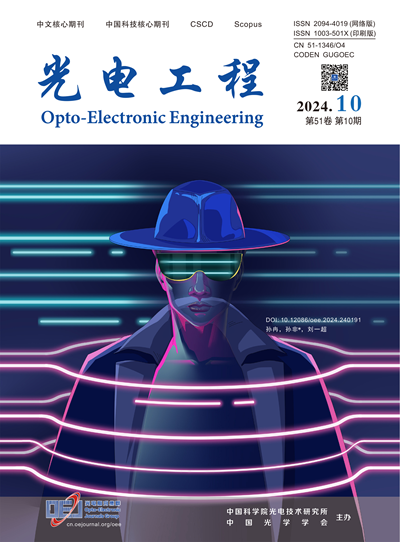In-situ deflectometric measurement of optical surfaces for precision manufacturing
Q3 Engineering
引用次数: 0
Abstract
The in-situ measurement of complex optical surfaces is a challenging task in precision engineering. The phase measuring deflectometry is a powerful measuring method for complex specular surfaces, and it has higher measuring efficiency, stability and dynamic range compared to interferometry. Consequently it is promising to widespread applications in various fields. Deflectometry is essentially a calibration problem, and the measuring accuracy is directly determined by the quality of geometrical calibration. An in-situ deflectometric measuring system is designed based on the single point diamond turning machine. A self-calibration method is developed to specify the relative positions of the camera and screen. Ray tracing is conducted at two positions of an auxiliary reflecting mirror, which is mounted on an air bearing spindle. The accuracy of the geometrical positions can be improved by an order of magnitude by minimizing the deviations of the traced points with respect to the true correspondences. According to the statistical properties of the deviations in reverse ray tracing, the form errors and the position errors can be separated, and the positioning error of the workpiece can be corrected accordingly. Henceforth, the nominal shape of the fabricated workpiece can be fully utilized, and the conventional one-way position-form mapping can be converted into a two-way mapping problem. As for the complex shapes, the whole surface can be covered by sub-aperture measurement. Precise localization of a local region under test is achieved by multi-position imaging, so that correct convergence of the iterative reconstruction process can be guaranteed. Several typical optical surfaces including an off-axis paraboloid mirror are measured, and the measuring accuracy of the proposed method is proved better than 150 nm RMS.精密制造光学表面的原位偏转测量
复杂光学表面的原位测量是精密工程中一项具有挑战性的任务。相位测量偏转法是一种功能强大的复杂镜面测量方法,与干涉法相比,它具有更高的测量效率、稳定性和动态范围。因此,在各个领域都有广泛的应用前景。偏转测量本质上是一个标定问题,其测量精度直接决定于几何标定的质量。基于单点金刚石车床,设计了一种原位挠度测量系统。提出了一种确定摄像机与屏幕相对位置的自标定方法。在辅助反射镜的两个位置进行光线追踪,该反射镜安装在空气轴承主轴上。几何位置的精度可以通过最小化跟踪点相对于真实对应点的偏差来提高一个数量级。根据反向射线跟踪中偏差的统计特性,可以将形状误差和位置误差分离开来,并对工件的定位误差进行相应的校正。因此,可以充分利用被加工工件的标称形状,将传统的单向位置形式映射转换为双向映射问题。对于形状复杂的工件,可以采用子孔径测量方法覆盖整个表面。通过多位置成像实现被测局部区域的精确定位,从而保证迭代重建过程的正确收敛。对包括离轴抛物面镜在内的几种典型光学表面进行了测量,结果表明该方法的测量精度优于150 nm的RMS。
本文章由计算机程序翻译,如有差异,请以英文原文为准。
求助全文
约1分钟内获得全文
求助全文
来源期刊

光电工程
Engineering-Electrical and Electronic Engineering
CiteScore
2.00
自引率
0.00%
发文量
6622
期刊介绍:
Founded in 1974, Opto-Electronic Engineering is an academic journal under the supervision of the Chinese Academy of Sciences and co-sponsored by the Institute of Optoelectronic Technology of the Chinese Academy of Sciences (IOTC) and the Optical Society of China (OSC). It is a core journal in Chinese and a core journal in Chinese science and technology, and it is included in domestic and international databases, such as Scopus, CA, CSCD, CNKI, and Wanfang.
Opto-Electronic Engineering is a peer-reviewed journal with subject areas including not only the basic disciplines of optics and electricity, but also engineering research and engineering applications. Optoelectronic Engineering mainly publishes scientific research progress, original results and reviews in the field of optoelectronics, and publishes related topics for hot issues and frontier subjects.
The main directions of the journal include:
- Optical design and optical engineering
- Photovoltaic technology and applications
- Lasers, optical fibres and communications
- Optical materials and photonic devices
- Optical Signal Processing
 求助内容:
求助内容: 应助结果提醒方式:
应助结果提醒方式:


